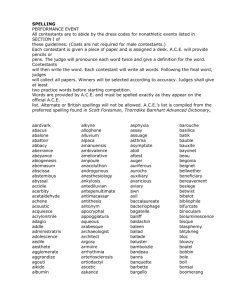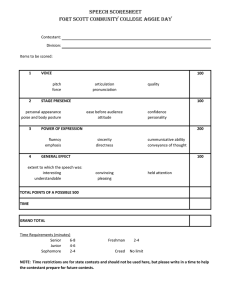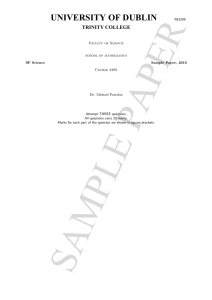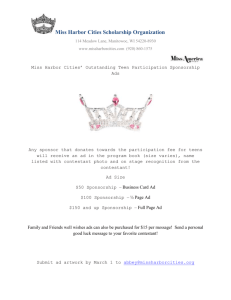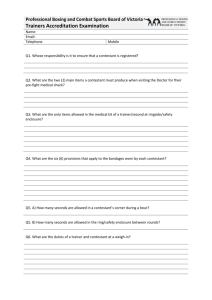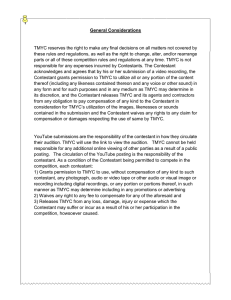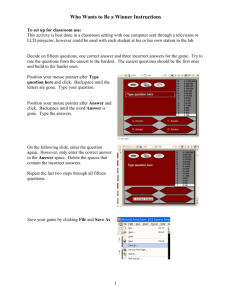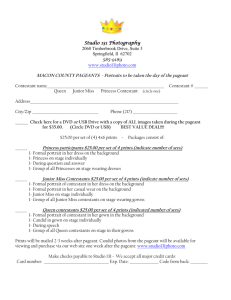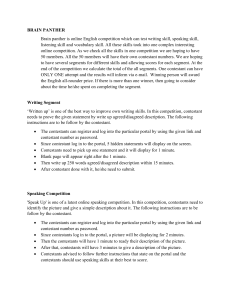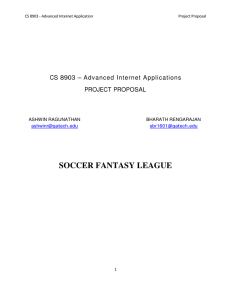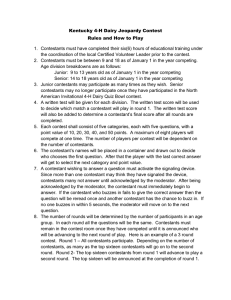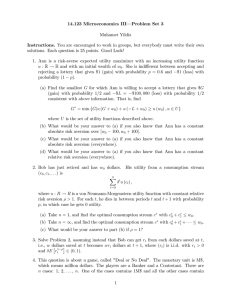The Rules
advertisement
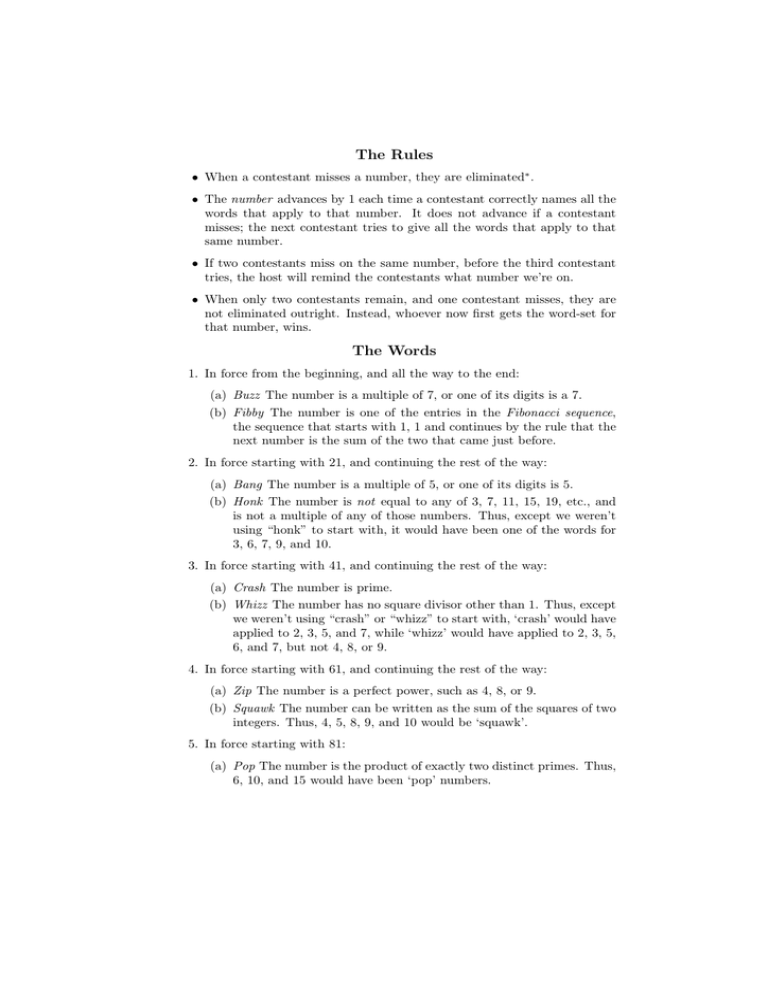
The Rules • When a contestant misses a number, they are eliminated∗ . • The number advances by 1 each time a contestant correctly names all the words that apply to that number. It does not advance if a contestant misses; the next contestant tries to give all the words that apply to that same number. • If two contestants miss on the same number, before the third contestant tries, the host will remind the contestants what number we’re on. • When only two contestants remain, and one contestant misses, they are not eliminated outright. Instead, whoever now first gets the word-set for that number, wins. The Words 1. In force from the beginning, and all the way to the end: (a) Buzz The number is a multiple of 7, or one of its digits is a 7. (b) Fibby The number is one of the entries in the Fibonacci sequence, the sequence that starts with 1, 1 and continues by the rule that the next number is the sum of the two that came just before. 2. In force starting with 21, and continuing the rest of the way: (a) Bang The number is a multiple of 5, or one of its digits is 5. (b) Honk The number is not equal to any of 3, 7, 11, 15, 19, etc., and is not a multiple of any of those numbers. Thus, except we weren’t using “honk” to start with, it would have been one of the words for 3, 6, 7, 9, and 10. 3. In force starting with 41, and continuing the rest of the way: (a) Crash The number is prime. (b) Whizz The number has no square divisor other than 1. Thus, except we weren’t using “crash” or “whizz” to start with, ‘crash’ would have applied to 2, 3, 5, and 7, while ‘whizz’ would have applied to 2, 3, 5, 6, and 7, but not 4, 8, or 9. 4. In force starting with 61, and continuing the rest of the way: (a) Zip The number is a perfect power, such as 4, 8, or 9. (b) Squawk The number can be written as the sum of the squares of two integers. Thus, 4, 5, 8, 9, and 10 would be ‘squawk’. 5. In force starting with 81: (a) Pop The number is the product of exactly two distinct primes. Thus, 6, 10, and 15 would have been ‘pop’ numbers.
